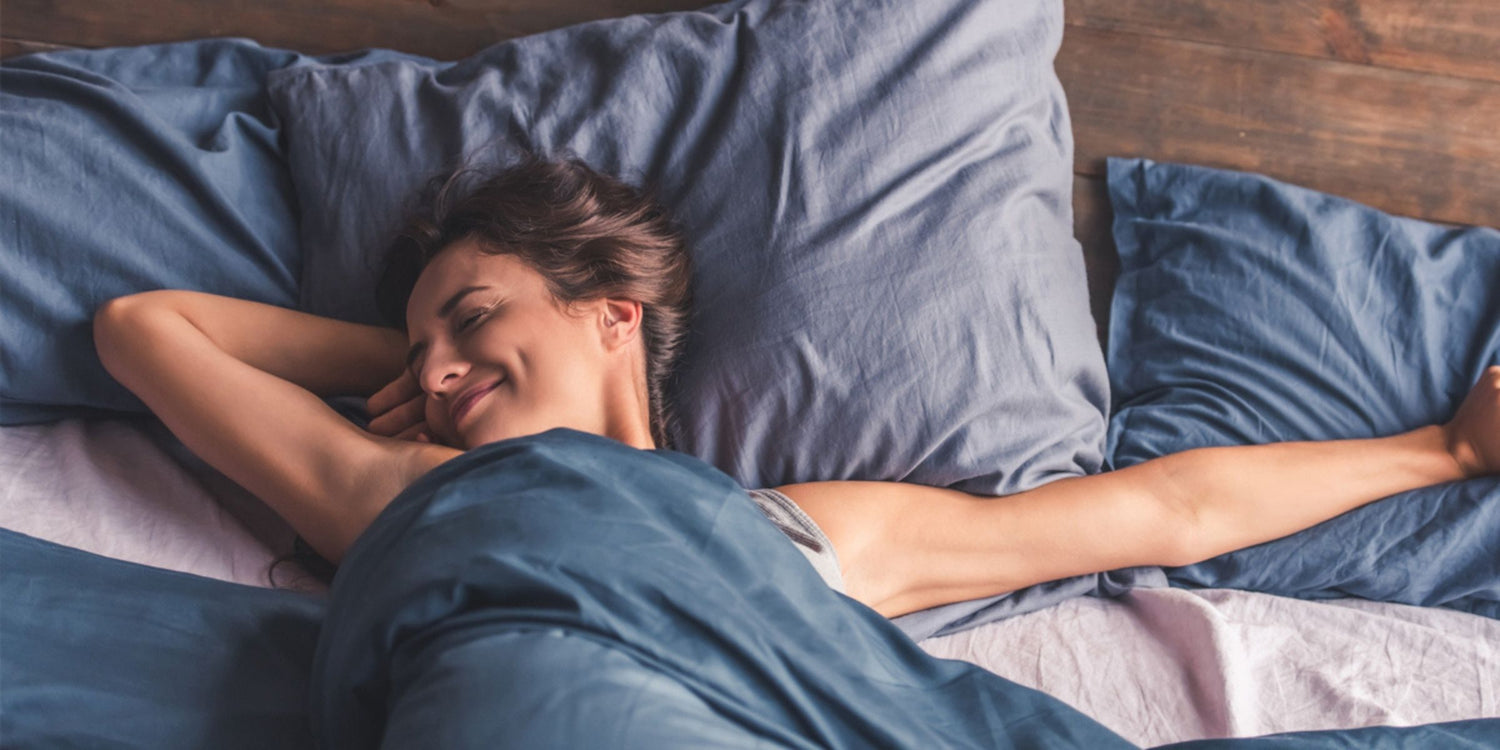On the other hand, missing out on a good night’s sleep may put you at higher risk of catching a cold. In one study conducted over two weeks, participants who got less than seven hours of sleep per night were nearly three times more likely to contract the rhinovirus[3] – the virus responsible for the common cold.
What happens while you're asleep
Snoozing can strengthen the body's protection against infections, thanks to the cytokines that are produced during sleep. Cytokines are a type of protein that the body uses to fight foreign cells (ie. infections). Getting less than an optimal eight hours of sleep results in a reduced production of these protective proteins. Other important parts of the immune system, such as immunocytes, don't work as well during times of sleep deprivation, either[6].
Energy is another important resource your immune system needs to battle a cold or infection*. A good night’s sleep is the best way to make sure your body can replenish the energy it needs to eliminate infections and bacteria, keeping you free from the sniffles[6]. Overall, the immune system doesn't have as much of a fighting chance against a common cold when its resources are depleted from poor quality sleep.
Quantity and quality of sleep are both essential
Pulling an all-nighter isn't the only thing that can weaken the immune system – a study found that sleeping just 10-30 minutes less than an optimal eight hours, or getting lower quality sleep overall, makes a significant difference to risk of infection[3]. Those participants who fell short of the recommended eight hours were four times more likely to develop a cold or infection compared to those who didn’t [3].
In addition to total hours of sleep, how deep you sleep also affects your immune health, and optimal sleep is also associated with decreased risk of longer term illnesses[2]. Light sleep and frequent waking during the night cuts down on total deep sleep time even – if you are keeping a regular eight hour sleep schedule – and leads to less energy and lowered immune function the following day[3].
How to get better quality sleep and more of it
A comfortable bed in a quiet, dark room can go a long way towards improving the quality of your sleep. For further support, using traditional herbal ingredients like passionflower might help to support healthy sleep. In a 2017 study, passionflower was shown to help patients with falling asleep, and lengthening the amount of time spent in slow-wave-sleep –a consistent deep sleep that the body needs to boost immune function.[4]
Support your immune system when more sleep just isn't an option
Taking a long-haul flight? Caring for a newborn? Pre-exam jitters keeping you awake? Don't worry – there are ways to support your immune system even when suboptimal sleep is unavoidable. Echinacea, andrographis and other herbs have been shown to support a healthy immune response and have traditionally been used to give the immune system a fighting chance during the cough & cold season. Key nutrients like vitamin C, zinc & vitamin D are essential for healthy immune function, and might reduce the severity and duration of infections including the common cold. [7]
Quick Tips for Better Sleep (Good Sleep Hygiene)
- Keep a consistent sleep schedule. Get up at the same time every morning, even on the weekends, and go to bed as soon as you feel tired
- Make sure your bedroom is pitch-black and quiet. Black-out curtains and earplugs can make a big difference
- Avoid cigarettes, alcohol, caffeine and recreational drugs – they can all disrupt sleep
- Start to "wind down" at least half an hour before bedtime and switch off devices and screen
If you're struggling with sleep or sub-optimal immune health, consider supplementing with some of the vitamins, minerals or herbs mentioned previously. Check out our Immune Health range here
*Infection refers to the common cold, mild upper respiratory tract infections & illness.
References
[1] Imeri, L., & Opp, M. R. (2009). How (and why) the immune system makes us sleep. Nature reviews. Neuroscience, 10(3), 199–210. doi:10.1038/nrn2576
[2] Opp, M. R., & Krueger, J. M. (2015). Sleep and immunity: A growing field with clinical impact. Brain, behavior, and immunity, 47, 1–3. doi:10.1016/j.bbi.2015.03.011
[3] Cohen, S., Doyle, W. J., Alper, C. M., Janicki-Deverts, D., & Turner, R. B. (2009). Sleep habits and susceptibility to the common cold. Archives of internal medicine, 169(1), 62–67. doi:10.1001/archinternmed.2008.505
[4] Guerrero, F. A., & Medina, G. M. (2017). Effect of a medicinal plant (Passiflora incarnata L) on sleep. Sleep science (Sao Paulo, Brazil), 10(3), 96–100. doi:10.5935/1984-0063.20170018
[5] Zhai, Z., Liu, Y., Wu, L., Senchina, D. S., Wurtele, E. S., Murphy, P. A., … Cunnick, J. E. (2007). Enhancement of innate and adaptive immune functions by multiple Echinacea species. Journal of medicinal food, 10(3), 423–434. doi:10.1089/jmf.2006.257
[6] Palmblad J, Pertrini B, Wasserman J, Kerstedt TA. Lymphocyte and granulocyte reactions during sleep deprivation. Psychosom Med. 1979;41:273–278.
[7] Veverka DV, Wilson C, Martinez MA, et al. Use of zinc supplements to reduce upper respiratory infections in United States Air Force Academy cadets. Complement Ther Clin Pract. 2009 May;15(2):94. https://www.sciencedirect.com/science/article/pii/S1744388109000127




